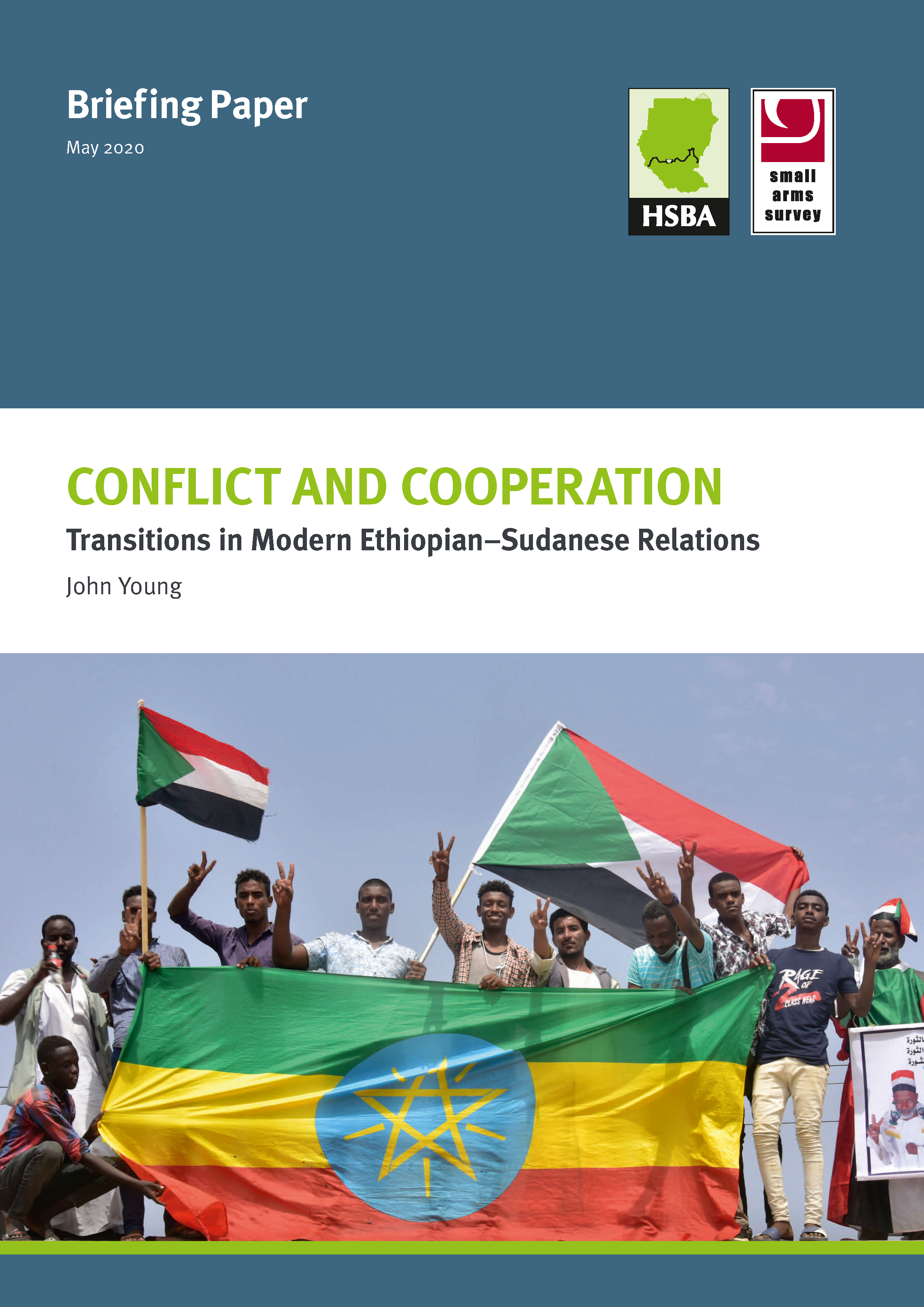
Conflict and Cooperation: Transitions in Modern Ethiopian-Sudanese Relations
The Nile River bears considerably on inter-state relations among the countries through which it flows; with struggles over control of its waters driving the political undercurrents of the region. Ethiopia and Sudan exemplify such relations, shaped as much by the ebb and flow of the Nile as the rise and fall of the regimes that have governed them. This Briefing Paper by the Small Arms Survey’s Human Security Baseline Assessment for Sudan and South Sudan (HSBA) project analyzes this relationship and its place in a politically dynamic and evolving region.
Conflict and Cooperation: Transitions in Modern Ethiopian–Sudanese Relations finds that the cold war both shaped and was itself shaped by the conflicts within and between the two countries. Following the end of the cold war, relations considerably improved under President Omar al-Bashir in Sudan and Prime Minister Meles Zenawi in Ethiopia. However, the recent emergence of new governments in both countries does not guarantee a cordial relationship in the future as on-going political reforms, internal threats, and external influences from powerful states weigh heavily on both countries.
Available in: ENGLISH
- More about the HSBA project
Have your say about Small Arms Survey resources: take 5 minutes to fill out our questionnaire.